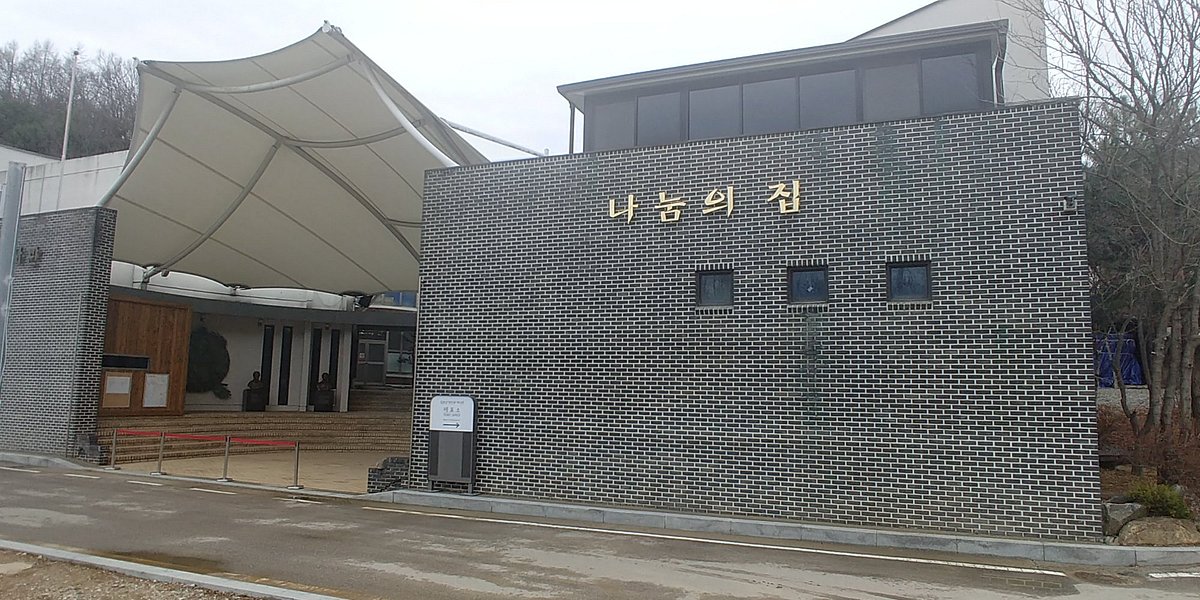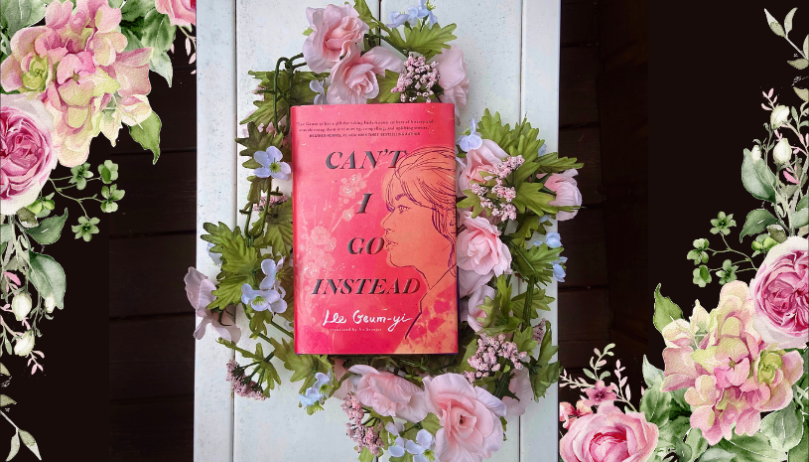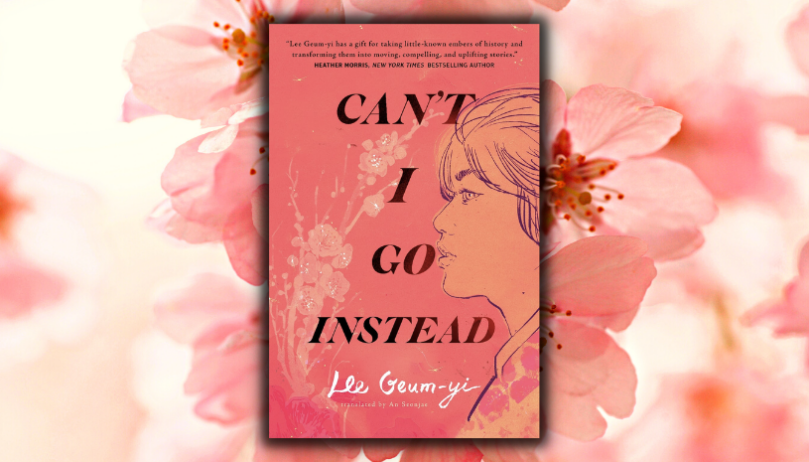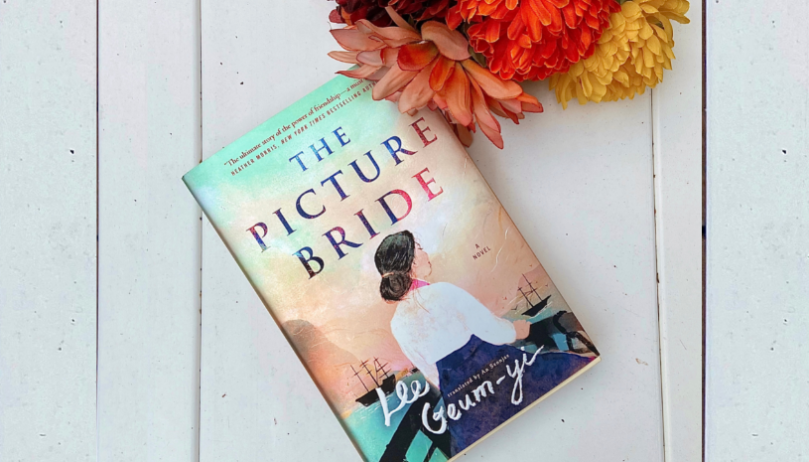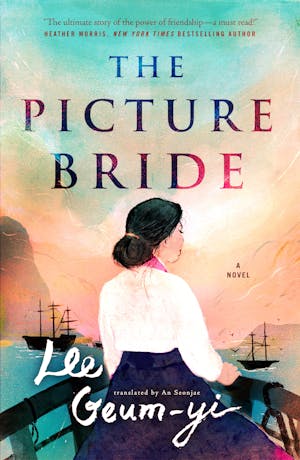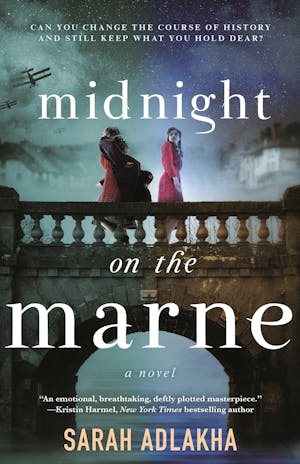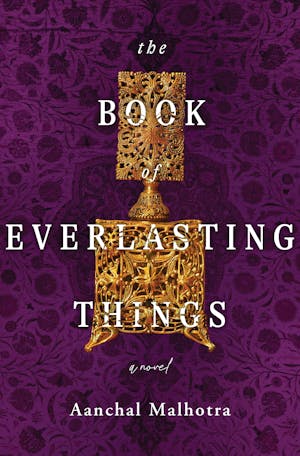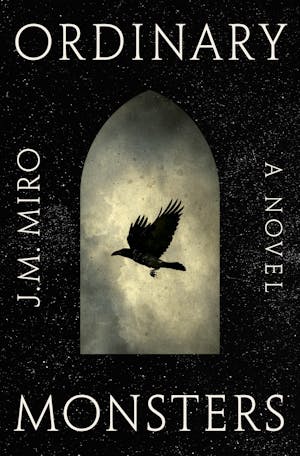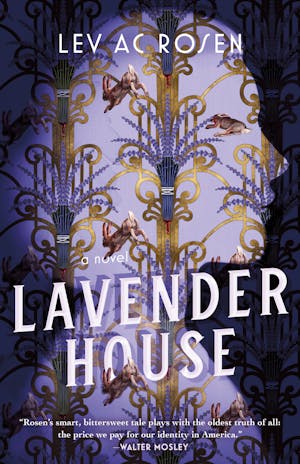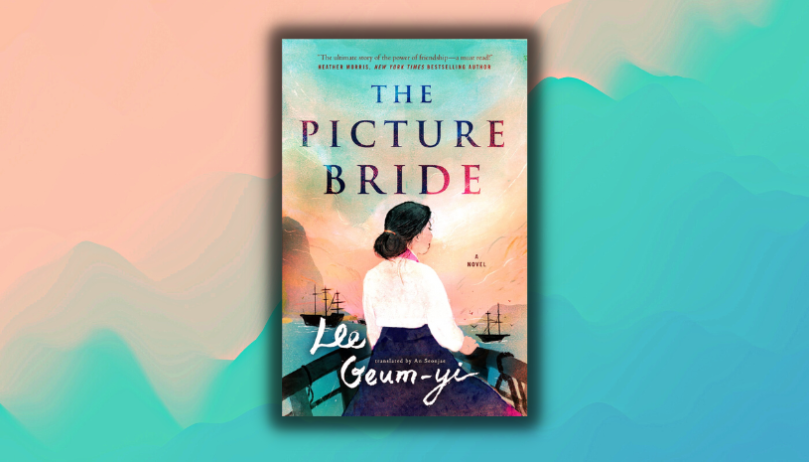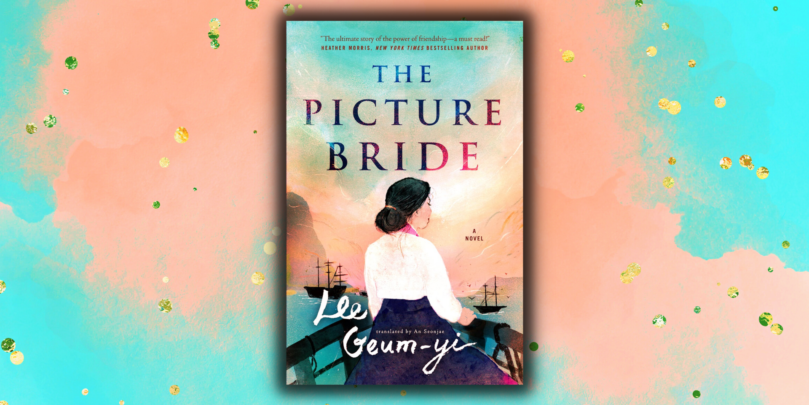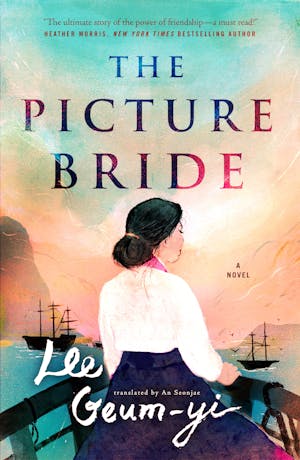 “Your husband is a landowner,” they told her.
“Your husband is a landowner,” they told her.
“Food and clothing is so plentiful, it grows on trees.”
“You will be able to go to school.”
Of the three lies the matchmaker told Willow before she left home as a picture bride in 1918, the third hurt the most. Never one to be deterred, Willow does all that she can to make the best of her unexpected circumstance. But it isn’t long before her dreams for this new life are shattered, first by a husband who never wanted to marry her in the first place, and then by the escalation of the Korean independence movements, unified in goal, but divergent in action, which threaten to split the Hawaiian Korean community and divide Willow’s family and friends.
Braving the rough waters of these tumultuous years, Willow forges ahead, creating new dreams through her own blood, sweat, and tears; working tirelessly toward a better life for her family and loved ones.
The Picture Bride will be available on October 11th, 2022. Please enjoy the following excerpt!
CHAPTER ONE
1917, OJIN VILLAGE
“Miss Willow,” the Pusan Ajimae said, “you’ll be eighteen next year, won’t you? What about going to Powa and getting married?”
At that, the eyes of Willow and her mother, Mrs. Yun, grew large. Although in fact she lived in Gupo, some miles away from Pusan, the “Pusan Ajimae” was a peddler who went about from village to village selling women’s things like camellia oil, face powder, combs, mirrors, haberdashery, and matches, from a bundle she carried on her head. She had been visiting Mrs. Yun’s family since she was a child. The Pusan Ajimae would visit Ojin Village once or twice a year, and always open her bundle, sell her wares, and stay overnight at Willow’s house.
In the villages nestling in the valleys along the foot of Maebongsan Mountain, the sky was visible as if from the bottom of a well. Ojin, a small village of less than fifty households, was particularly remote. In order to reach the closest market, at Jucheon, it was necessary to cross the crests of three hills. Therefore, the village women waited impatiently for a visit from the Pusan Ajimae. Among the items in her bundle, they rarely bought anything but packets of needles or some matches, all the other things being too expensive for them, but still they were a feast for the eyes. And hearing news of the outside world from the Pusan Ajimae, who journeyed all over the region, was a feast for the ears.
That evening, the women who had filled the room went back home, while Willow’s younger brothers Gwangsik and Chunsik went across to their room to sleep. As she unfolded the bedding, Willow eyed her mother for some reaction to the unexpected talk of her marriage. She had never heard of a place called Powa. The same was true for Mrs. Yun, for whom the name was unfamiliar.
“Powa? Where’s that?”
Her mother’s expression was a combination of delight and anxiety. Willow knew the cause of her anxiety. No matter how good a marriage candidate the man might be, it was going to be difficult to find the money to prepare a new set of bedding to take as the bride’s contribution.
Before she was born, her father, Schoolmaster Kang, had nourished the ambition of passing the state examination, restoring the fortunes of his impoverished family, and transforming the corrupt world. On passing the first part of the exam, he was entitled to be called Chosi Kang, but then the examination system was abolished. There could be no greater disaster for Chosi Kang, who had been doing nothing but preparing for the exam. Not only was the paltry financial aid he had been receiving from his family cut off, but his father-in-law also went bankrupt and could not help. A yangban without an official position and without money was like a tasty-looking, rotten apricot
Chosi Kang set up a scrivener’s office on the marketplace in order to earn a living, but they were so poor that Mrs. Yun was obliged to earn money with her needle. Then wealthy Mr. An invited Chosi Kang to become the schoolmaster in Ojin Village.
Eight years ago, when Willow’s father passed away, a shadow like that of a mountain fell over her family home, even on clear days, together with a heavy silence. When the eldest son died two years later, the shadow over the house settled on her mother’s face.
“Well, it’s a bit far off. Have you ever heard of America?”
“I’ve heard of it,” Mrs. Yun replied. “The foreign pastor of Jucheon Church is an American. Is he from Powa?”
“Well, Powa is American land, but it seems it’s an island that they call ‘Hawaiʻi.’ If you go there, they say you can sweep up money with a dustpan. I’ve been told that clothes and shoes grow on the trees, you only have to pick them and put them on. The weather is wonderful, too. Every season is late springtime, so you don’t need winter clothes.”
The Pusan Ajimae’s face was looking more excited than when she was selling her merchandise.
“Outside of Paradise, can there be such a place?” Willow asked excitedly.
“Well, they say Hawaiʻi is a paradise. Once you go there, fortune will smile on you. If I were ten years younger, I might powder my face and get married myself.”
At the wrinkled old Pusan Ajimae’s words, Willow and her mother both laughed, and the atmosphere in the room, which had grown tense with talk of marriage, grew more relaxed.
“But are there men from Korea living there?” Mrs. Yun asked.
Willow was also curious.
“A decade or so ago, a large number of men from Korea went to work in Hawaiʻi. Now they’ve succeeded in life and want to find brides. One of my husband’s relatives living in Pusan sent their daughter to be married in Hawaiʻi. When she went, she left in tears but after five years, she’s helped them to buy land and build a house. And she felt it was too good to be enjoying life there alone, so she’s sent her brother photos of would-be husbands, men wanting a bride from Korea. He’s asked me to help find an especially good lady I know of. I even have a photo of the would-be bridegroom.”
The Pusan Ajimae pulled a picture from her bundle and held it out. Willow was bashful about looking directly at it, as if she were facing a real man. Instead, Mrs. Yun took it and examined it closely. Willow scrutinized her mother’s expression. She was curious to know what he looked like
“Well, will he do as a son-in-law?” asked the Pusan Ajimae.
“Does he look like a good man? He’s not only a good person, he’s a landowner who’s farming on a really large scale.”
On hearing that, the eyes of Mrs. Yun and Willow grew even larger.
“A landowner?” Mrs. Yun’s voice grew louder. “In the United States? While the Japanese are taking people’s land away from us, how could we become a landowner in a foreign country?”
It was the dream of everyone in Korea to farm their own land.
“That’s right. If you’re diligent, you can go to another country and purchase land. Why, you’re holding a picture of a man who did this, aren’t you? So, will you powder your face and set off?”
Mrs. Yun let the photo drop onto Willow’s skirt.
Willow shyly picked it up; her eyes were already gazing at the man in a suit. He had dark eyebrows, big, bright eyes, a straight nose, and a tightly closed mouth and seemed to be staring at her. Her face turned red. Willow’s heart began to race.
“On the back there’s his name and age.”
Willow flipped the photo over. On it was written in a neat hand, So Taewan, 26 years old. The name So Taewan was immediately imprinted on Willow’s heart.
There was nobody else around, but the Pusan Ajimae lowered her voice. “If he’s only twenty-six years old, that’s young. It seems most of the men in Hawaiʻi looking for brides are older.”
“If it’s not a matter of a second marriage, what’s a nine year difference?” Mrs. Yun asked, indicating that she was half inclined to accept. “Where is his home and how large is his family?”
Willow’s eyes were fixed on the picture. Even if she liked him, he was too far away. Even if he lived close by, it would be hard for her to visit her home more than once or twice a year, but if she went to Hawaiʻi, she might never see her family again. She didn’t want to go that far, leaving her mother and younger brothers behind.
“His hometown is Yonggang in Pyongan-do, up in the north. His mother died a few years ago, his sisters are already married and living elsewhere in Korea. Father and son are the only remaining family. There will be no other family to care for. And just think, if you go there you’ll be able to go to school.”
Willow looked up. “Is . . . is that true?”
“Sure. The girl from our family was totally illiterate, but after arriving there she was able to study. Now she writes letters home, and she can speak English like an American.”
Willow’s heart pounded.
When a primary school was established in Jucheon, her father had sent her eldest brother to school. He reckoned that since the world was changing, his children should study the new subjects as they grew up. Two years later, he sent Willow, who had just turned eight. Hongju, her friend, pestered her own father, Mr. An, until she was able to enroll with Willow. Hongju’s family had been commoners for generations, but Mr. An had earned enough money by buying and selling cattle and bought land in Ojin Village. He built a tiled house overlooking the fields and settled down, then bought a genealogy allowing him to be considered a yangban. The local people called him “Wealthy An” because they didn’t think he merited any title.
Both girls were the only daughters in their families, the other daughters having died early. Willow was the second child among her brothers, and Hongju was the youngest, after her brothers.
It was much more fun for Willow to learn Hangul, Japanese, arithmetic, and gymnastics with friends at primary school than to study the Thousand Character Classic at her father’s Confucian academy. Although she had to climb over three hills to reach the school, it didn’t bother her. However, when her father passed away, her mother couldn’t afford the monthly school fee for both children. If one of them had to quit, of course it would be the daughter.
Willow left school without completing her second year and helped with the housework, and taking care of her younger brothers. The following year, Mrs. Yun sent Willow’s other younger brother Gyusik to school, but not Willow.
“What about me?” Willow argued and pleaded. “Send me back to school, too.”
“It’s enough if a girl can read and write her own name. What more do you need?”
At that, Willow threw a tantrum.
Mrs. Yun tore off her apron and stood up. “If you don’t stop right now, I’m going up to throw myself over the waterfall in Maebongsan Mountain and die.”
Frightened of being an orphan, Willow embraced her mother’s legs as she prepared to leave the room and swore that she would never again talk about going back to school. After that, the only thing she could do was to comfort herself by writing on the ground with a poker so as not to forget the letters.
After graduating from the four-year primary school, Hongju had not gone on to the girls’ upper school. She had no interest in studying, and her parents had no intention of sending their daughter to one of the new schools, the threshold of which none of their sons had ever crossed. After being in a place with a school and a market, Hongju returned to her mountain-valley home and felt bored, but Willow had been glad to have a friend nearby. While she was with Hongju, she could forget her situation, obliged as she was to help her mother earn a living. In the evenings, Hongju’s house was the only place that Willow was allowed to visit. Taking her sewing with her, Willow would hurry to Hongju’s place whenever she was free. Sewing was less boring when she was chattering with Hongju than when she stayed with her mother.
Hongju had a room all to herself opposite the main building. There, Willow had enjoyed snacks such as dried persimmons or cookies, and read novels that Hongju kept hidden in her clothes chest. After reading the books, they would talk nervously about free love, apply lipstick, and imitate the heroines.
The previous year, when Hongju had turned sixteen, her bridegroom had been chosen. He was from a prestigious yangban family in Masan. Her mother had taught her how to keep house lest her daughter be scolded once she was married. Most of all, Hongju had hated sitting quietly and sewing. Willow, who had acquired her mother’s skill while helping with the needlework, spent the evenings embroidering the cushions and pillowcases that her friend would take to her new home.
When Hongju’s mother left the room to tend to other chores, Hongju would lay aside her embroidery frame and chat away. While Hongju was thrilled to be leaving Ojin Village for busy Masan, Willow was already missing her friend. It would be different from when Hongju had been away at school. Then, there had been a time limit, she would come back after graduating, but getting married meant leaving forever.
When Hongju’s wedding was celebrated in the yard of her home and she had left the village, Willow cried more bitterly than Hongju’s mother. Now, there would be no one to open her heart to, no moments of respite with her friend. It seemed that Willow would never be able to cast off the shadow of her father’s absence. However, two months after her marriage, Hongju became a widow. Rumors circulated that the groom’s family had concealed the fact that he was sick, or that her father had been so eager to form an alliance with a yangban family that he had concealed the fact that a fortune-teller had said that their horoscopes showed that they were incompatible.
Tradition dictated that once a woman was married, she “buried her bones” in that house forever. When Willow thought of Hongju, she was reminded of an embroidery left bloodstained after her needle pricked her finger. No matter how well the embroidery was done, it was useless once it was stained. In a flash, through no fault of her own, Hongju’s destiny had become that of a bloodstained embroidery.
Willow sometimes felt guilty wondering whether her friend’s misfortune might have been caused by her own negative attitude, because she had disliked seeing her get married. “How will she spend her whole life in that household without a child?” Willow sighed as she sewed. Her mother had long been in the habit of saying that if it had not been for the children, she would have thrown herself over the Maebongsan Mountain waterfall long ago.
“Stop sighing,” said Mrs. Yun as she cut a knotted thread. “That’s just Hongju’s destiny.”
It turned out not to be the case. Hongju returned to her parents’ house shortly after her husband died, thanks to a divination by the Surijae shaman, who declared that if a young widow remained in the house, a yet greater disaster might befall them. Not only Hongju’s in-laws, but even her own family reckoned that her husband had died because of her. There was also a rumor in the village that Wealthy An had offered his in-laws a large sum, enough for them to live on, in return for bringing Hongju home.
On the evening she went to see Hongju for the first time after her return, Willow’s heart and steps were heavy. Willow had grown up seeing her widowed mother. More tenacious than the suffering of the one who had lost her husband was the widespread gossip about the woman who had devoured his vitality. The title of “widow” that she would have to bear like a yoke all her life was like the name of a great crime.
As Willow made her way to Hongju’s house, combining her own sorrow with Hongju’s misfortune, she imagined all kinds of sad things. She prepared to hug her friend and cry. As she entered the gate, she could not help being struck by the sight of Hongju’s mother’s grief-stricken face. She seemed to lack the energy to say anything, merely greeting her with a look and nodding in the direction of Hongju’s room. When she saw Hongju’s elegant leather shoes lying on the stone step in front of the room, she felt tears rising. Willow left her straw sandals beside them and entered the room.
Hongju, wearing mourning dress and with her hair in a bun, sat in the darkened room with one knee raised. She didn’t look around even though she knew that Willow was there. Her husband had died two months after the marriage. It was as though her whole world had collapsed. Willow, sympathizing with her friend’s unfortunate situation, scarcely daring to breathe, sat down next to her. A housemaid, coming in behind her, put down a plate of dried persimmons and looked briefly at Hongju. Once she had left the room, Willow prepared to speak.
Just then, Hongju shook out her skirts and relaxed her formal posture, lowering her knee. With both fists resting on her crossed legs, she gave vent to her fury. “That guy had always been sick. I didn’t kill him, so I don’t see why I should stay locked in here like a criminal. If his family had not turned me out, what would have become of me? If I had to spend my whole life in that house, I would have suffocated to death.”
Hongju was unlike any widow that Willow had ever seen. As Hongju spat out without hesitation ideas that she had barely dared formulate, Willow felt relieved. She was right. Even if someone became a widow, even if the children were left fatherless, it was not their fault.
“That’s what I think, too. They did well to turn you out.”
Willow and Hongju hugged and laughed, instead of crying.
Without knowing that, Hongju’s mother, fearing that her daughter might reach some bad decision on account of her changed situation, asked Mrs. Yun to let Willow visit her every day.
Once again, as before, Willow and Hongju sat embroidering or chatting together or reading novels. The only thing that had changed was that Hongju now had experience of a man, so her words were more forthright.
“I got through the first night as best I could because it was my first time. Having read love stories, I was better prepared than that sickly bridegroom smelling of milk. He was shaking so much he couldn’t even undo my dress. . . . Really, it was so frustrating.”
Willow listened with red cheeks and sparkling eyes.
The first rooster crowed. The rooster belonged to Jangsu, the most hardworking fellow in Ojin Village. Willow had not slept a wink, and not just because of the Pusan Ajimae’s snoring. She felt that her beating heart was even louder.
Mrs. Yun had postponed giving an answer the previous evening, saying that she would think about it, but Willow inclined more and more toward marriage as time passed. “If you agree, the groom’s family will send you all the wedding expenses, so you don’t have to worry about money.” She wanted to go to Hawaiʻi. She wanted to study. In the future, she didn’t want to live like her mother, she didn’t want to earn a living as a widow’s child by sewing, then get married to a man in a similar situation. There was no time for herself in her mother’s life. It was a world where it was natural for daughters to sacrifice themselves for their parents and brothers until finally they got married. But in Hawaiʻi, married women could also study. That alone made Hawaiʻi a paradise. Although it was a once-in-a lifetime chance, she also knew she wanted to leave her family for the sake of her desires, and she felt ashamed.
If only Omma would send me to school, I wouldn’t feel like this.
Willow braced her weakening heart and reminded herself that by getting married she would be helping the rest of her family. When she got married, that would mean not only a helping hand less but also one mouth less to feed. Then her mother would have fewer difficulties. Gyusik, who was working in a bicycle shop in Kimhae, was earning his own living, while Gwangsik and Chunsik were already fully grown. Rather than staying at home doing the cooking, it would be much better for her to get married and help her family live better, like the Pusan Ajimae’s niece. The more she thought, the more she felt that there could be no better groom for someone in her situation, and felt impatient at the thought that they might miss the opportunity by putting off answering.
As usual, her mother rose before dawn, combed her hair and pinned up her bun before she went out to the privy. Willow, who had not slept a wink all night long, shook the Pusan Ajimae as soon as her mother went outside.
“Ajimae, Ajimae.”
“What’s the matter?” The Ajimae mumbled a reply, still half asleep, and turned toward Willow. Fearing that her mother would soon return, Willow spoke in an urgent voice.
“Is it true that I can study if I go to Hawaiʻi to get married?”
So long as she could study, it didn’t matter if she didn’t live in luxury. Even if she had a hard time, she wanted to do something for herself just once. As the Ajimae sat up straight, Willow did likewise.
“It’s true. I told you, didn’t I? My niece, who was completely uneducated, went and now she writes letters home and speaks American like a native.”
“Ajimae, I want to go to Hawaiʻi and get married. Please, convince my omma.” She seized the woman’s hand and pleaded.
“You’ve made the right decision. Don’t worry.” The Ajimae rubbed the backs of Willow’s hands.
Once Willow’s decision was made, her mother agreed. But the marriage was not accomplished just because Willow had made up her mind. Willow also had to send a picture and receive the bridegroom’s agreement.
“Don’t worry,” said the Pusan Ajimae. “There’s no better bride to be found anywhere, I’ll put in a good word for you. As soon as day dawns, let’s go to the photo studio and take a picture.”
“That’s what you think,” Mrs. Yun sighed, “but she has no aboji, we’re hard up, nothing special . . . and she has nothing decent-looking to wear for the photograph.”
Once she had decided to marry off her daughter, So Taewan became a son-in-law too good to lose. But her mother was right.
Willow spoke impatiently. “Omma, shall I ask Hongju to lend me some clothes?”
Mrs. Yun startled. “Are you asking for bad luck? How could you even think of taking a wedding photo wearing a young widow’s clothes? Do you want to ruin things from the start?”
As far as Willow could see, apart from not being able to leave the house, Hongju was better off than she was, being able to speak freely, eat freely, with no problems. At present she was worse off than a widow, but things would change once she got married in Hawaiʻi. Willow imagined herself as a new woman who had studied, beautifully dressed, coming home with husband and children. That was something that could never happen to Hongju.
“You’re right, those clothes won’t do,” the Pusan Ajimae agreed.
After thinking for a moment, Mrs. Yun seemed to have come to a major decision. “We’ll use a little trick. Willow, wear those clothes and have the photo taken.”
The clothes she indicated were a set she was making for someone who was soon to be married, and all that remained to be done was to stitch on the lining of the collars.
“Oh, how could you propose such a thing?” said Willow, startled.
Her mother had never coveted so much as a grain of other people’s barley, even if she was dying of starvation, and had taught her children to be the same.
Mrs. Yun spoke resolutely with a flushed face. “Do it. If we send a picture of you wearing a nice dress, the marriage will surely succeed. If you wrap it up well and wear it only when you take the photo, it won’t show any sign of having been worn.”
“That’s right,” the Pusan Ajimae agreed. “And since it’s for a good cause it will be okay.”
Mrs. Yun applied camellia oil to Willow’s freshly braided hair. The Ajimae said she would go with her to the photo studio and apply powder and rouge.
Willow left the house with the Pusan Ajimae, carrying that other person’s clothes in her arms. She felt a little awkward about deceiving the man she was to marry from the beginning, but even Willow was reluctant to send him a picture of her dressed in patched clothes. Willow wanted to please Taewan and go to Hawaiʻi.
The question of the clothes was solved, but there was another problem. It was the fact that Hongju knew nothing of this great event. Her mother had begged her to keep it secret from Hongju until the marriage was settled. If the word “marriage” started to circulate and then things went wrong, that too was always considered the woman’s fault. Hongju had spoken to Willow frankly about everything in the meantime. She had not hidden the fact that her first love had been Willow’s dead brother, or what happened on the first night of her marriage.
On the evening of the day when the picture was taken, Willow went to Hongju and told her the truth. No matter how hard her mother begged, she didn’t want to have any secrets from Hongju, and the news was too daunting for her to keep it hidden in her heart. Hongju already knew about marriages between men living in Hawaiʻi and girls from Korea.
“I heard talk about it from my in-law in Masan and her neighbors. One neighbor’s eldest daughter got married by a picture marriage then arranged for her younger sister to go too. At that time, I couldn’t imagine going so far to get married, but now it looks a hundred times better than being a widow.”
As soon as she heard what Hongju said, the anxiety that was lodged in one corner of Willow’s heart vanished. The Pusan Ajimae was not the kind of person to lie, but there was the vague fear of an unknown place. But Hongju’s neighbor’s daughter wouldn’t have called her sister to join her if Hawaiʻi wasn’t a good place.
Willow even went so far as to tell her that the groom was a landowner, and that in the photo he looked manly. She couldn’t bring the picture because she was not following her mother’s request for secrecy. Willow was really worried. “What will I do if he says he doesn’t like the look of me?”
“Then ask for another bridegroom. He’s not the only one, is he? You have to be happy. I want to go to Hawaiʻi too. It’s so boring, I can’t endure staying cooped up at home any longer.”
It was the first time Hongju had ever envied Willow.
But the next evening, Hongju’s mother visited Willow’s home.
“Go and fetch a bowl of water,” said Mrs. Yun to Willow.
As she left the room, Willow felt sudden anxiety tugging at the back of her head. What was going on in the middle of the night? Had something happened to Hongju? Had she heard of the picture marriage? Had she come to complain that she had given Hongju false ideas? Mother will scold me severely because I didn’t keep the secret from Hongju. Willow’s hands trembled as she shut the door behind her. Just then, she heard Hongju’s mother speaking.
Willow stopped and listened hard.
“I’ve heard about picture marriages. We’ll send Hongju too. Her husband died before he could inscribe her name in his family register, so she’s free, but there’s no thought of deception in any case. There must be a widower like Hongju. Tell me where the Pusan Ajimae lives.” Her voice was also trembling.
Willow went to the kitchen and drew a scoopful of water from the jar. Her hands were shaking and the precious water spilled. More overflowed when she poured it into the bowl. Willow sat down for a while on the stove to calm herself.
When she had thought that Hongju couldn’t go, she had wanted to brag about her great good luck, but hearing she could go too, there was nothing better than that. If her friend was there too she wouldn’t feel lonely and would be much more assured. Since it was a paradise, there would be no difficulties, but it would be much more fun being happy together. Just as Willow went back into the room, Wealthy An’s wife was suddenly startled.
“Oh dear. We’re acting behind my husband’s back.”
Willow set the bowl of water in front of her.
“How are you going to win him over?” Mrs. Yun asked with a worried look.
Hongju’s mother gulped down the water, then put the bowl down with a bang, and spoke determinedly. “He can only kill me, can’t he? If Hongju stays here, it’s a living death for her. Even if I die, I’ve had my life. It’s better I should die than have a young child fading away, trapped in her room.”
“You’re right. It’ll be far better than staying here. That’s why I’m sending our Willow. I was worried about sending our grown-up daughter all alone on a long journey, but if Hongju goes with her, that’s wonderful. You’ve thought of Hongju’s future and made a difficult decision.”
Mrs. Yun seized Hongju’s mother’s hand and the two shed tears together. Willow too had a runny nose.
Click below to pre-order your copy of The Picture Bride, coming October 11th, 2022!
opens in a new window
opens in a new window
opens in a new window
opens in a new window
opens in a new window
opens in a new window



